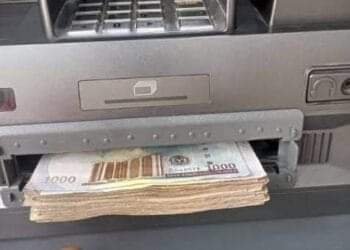Point of Sales (PoS) operators in Lagos have cried out over the worsening naira scarcity being experience by the banks’ customers.
Because of the greater efforts made to secure the local currencies from other sources, they have threatened to increase their charges to make up for what they spend to source naira from alternate sources.
One of them that spoke with Peoplesmind said, she has to go to filling stations to lay siege on petrol attendants who have have cashed in on the situation to demand some money before they part with what has become ‘gold’.
On some other occasion, she will have to rely on market women who will part with cash to her after the day’s sales at a cost to be able to give to her customers.
The situation persists despite previous assurances from the Central Bank of Nigeria (CBN) that there was an adequate supply of currency in circulation.
The policy, which aimed to curtail excess money supply and was initially proposed between October 2022 and March 2023, encountered legal pushback that culminated in the Supreme Court extending the validity of old notes until December 2023. However, this extension has not alleviated the current scarcity.
Financial institutions across Nigeria have implemented stringent measures in response to the cash crunch. Union Bank has capped ATM withdrawals at N5,000 for non-customers and N20,000 for customers. In contrast, customers at Access Bank have faced ATMs devoid of cash. GTBank has set a withdrawal limit of N20,000 due to reported shortages.
In Abuja, network issues have compounded the problem by impeding bank transactions. In Kano, banks have outrightly denied withdrawals as ATMs remain inactive. Kwara banks have adopted a universal daily withdrawal limit of N20,000, with Zenith Bank being an exception by permitting up to N500,000.
Peoplesmind


